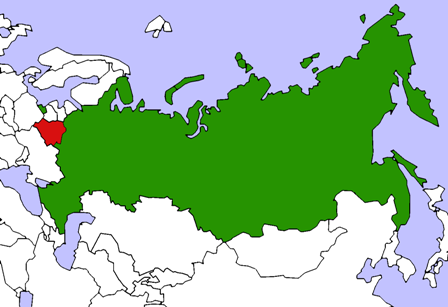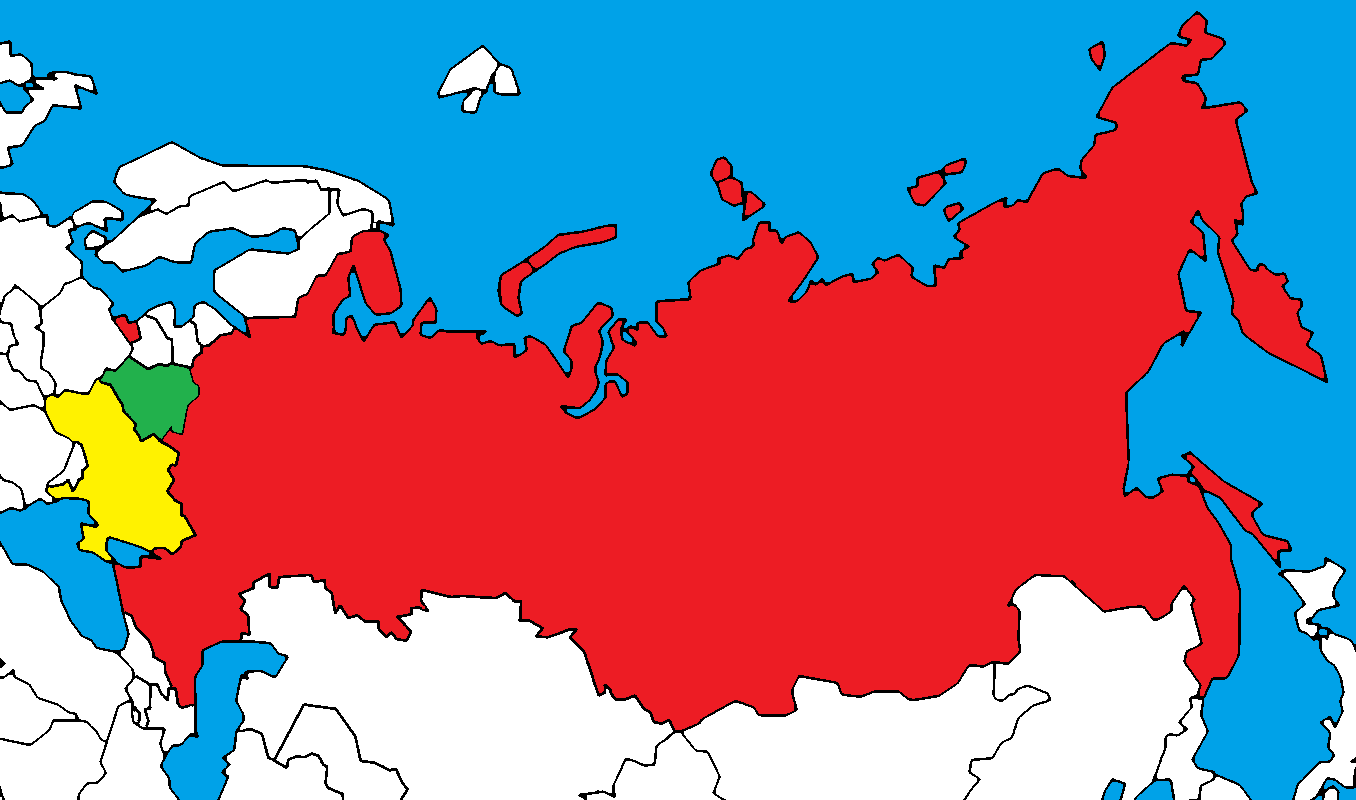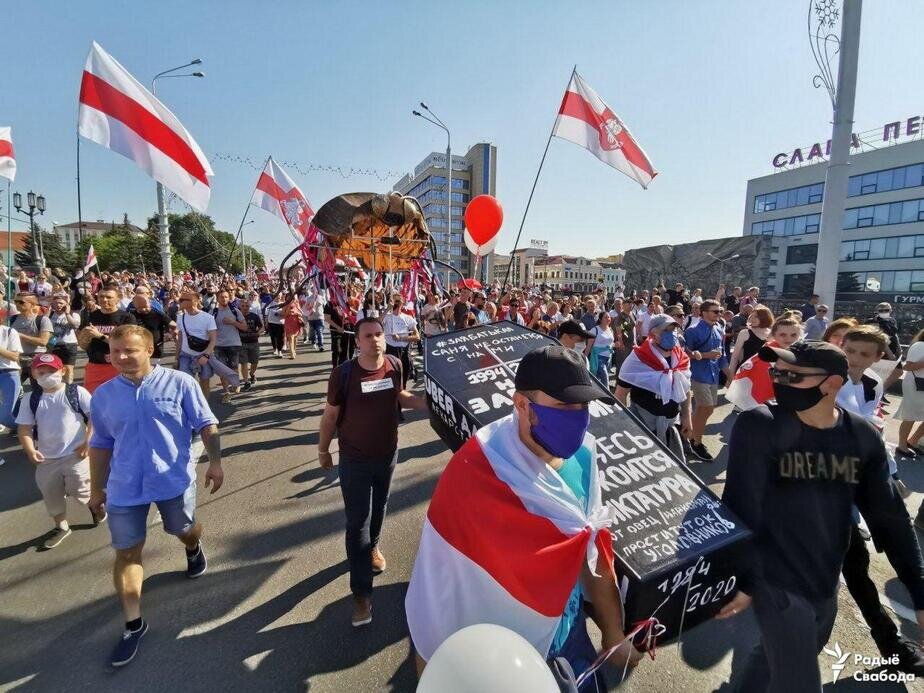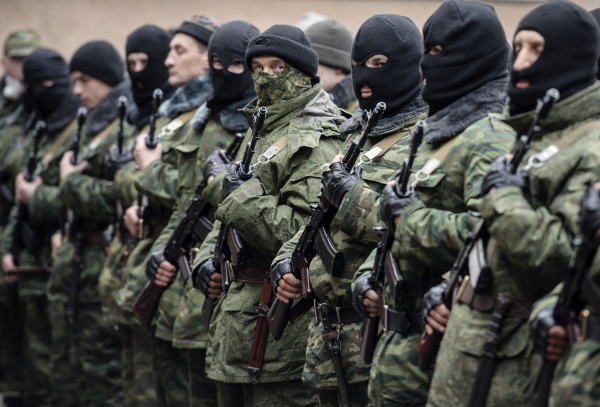In 2003, Leonid Kuchma published a book emphasizing that “Ukraine is Not Russia” in response to increasing Russian insistence that Russians and Ukrainians are not separate nations. Now, faced with Moscow’s continuing denial of their distinctiveness, many Belarusians are making a similar argument about themselves.
Many of the articles and books which make the case that Belarusians aren’t Russians just like their counterparts that Ukrainians aren’t Russians are easily dismissed because their authors insist that their nation is the repository of everything good and the other is the manifestation of everything bad.
But there are cases which deserve close attention because they go beyond that, acknowledge shortcomings in their own nation as well as pointing them out in the other and that admit that the cultures have been intermingled as a result of political history and social engineering, even though such processes have not eliminated key distinctions.
Writing on the Belarusian opposition portal Charter 97, Viktor Nikitenko
avoids these pitfalls and focuses as he says on both commonalities and differences in the characteristics and models of behavior of Belarusians and Russians before pointing out that the differences overwhelm the commonalities.
“The main distinction of the Russian from the Belarusian,” the commentator says, “is the powerful emotionalism” of the former and are often manifested in “maximalism and extreme judgments.” The Belarusian in contrast is “the opposite of the Russian: he is pragmatic, quiet and doesn’t like extreme ideas or actions.”
Russians are more inclined to “blindly following ideas and slogans” and to rush forward without reflecting on their implications. Belarusians in contrast take their time and don’t get so excited about ideas. That works both to their benefit but also to their detriment in some cases, Nikitenko says.
Another major difference, he continues, is that Russians are far more open to people different than themselves than are the Belarusians who are more inclined to a focus on their own community and to social “isolationism” than to “collectivism.” That too works both for and against the Belarusians – and one could add the Russians as well.
The two peoples because of a history which has often linked them together are both given to hero worshiping their leaders. But this hero worship is very different in the two cases. Russians simultaneously deify their leaders while retaining an anarchic streak of changing from one leader to another. Belarusians in contrast don’t go as far in either direction.
Another distinction between the two nations, Nikitenko says, is the relationship of their behaviors in public and private. Among Russians, there is not a large gap in most cases; but among Belarusians, especially now, the distance between how they have in public and how they behave in the privacy of their homes can be enormous.
He gives the following example: A Belarusian may spend thousands on a foreign car and stylish clothes to display when he is among others. But when one visits his apartment, it is unlikely to have been updated or even repairs. Indeed, Nikitenko says, it often looks like in style “a back to the USSR” advertisement.
When suffering from difficulties or a lack of hope, he continues, “a Belarusian will love to identify with the effective speeches of banal populists … who say what the suffering want to hear at a given movement. In large measure, Russians also like to be self-deceived and to put liars and clowns in the center of attention.”
The two nations divide in this, however. The Russian may give lip service to the grand schemes of his leaders; but the Belarusian will “slowly but scrupulously” try to implement what the leaders say “even if this process doesn’t have any sense.”
Ethnic Russians “very much love to destroy everything old and build on the ruins something new and are inclined to adventurism and revolutionary methods of resolving problems. The Belarusian ability to remember and preserve their history and the Russian habit of instantly forgetting the past” lead to fundamentally different approaches to public life.
The willingness of Belarusians to go along and their “latent xenophobia” are “the foundation on which the authoritarian power in Belarus is built. Infantilism dominates the personality of the Belarusian and is something immanent.” It is concealed in many cases by xenophobic attitudes.
At the same time, certain Russian characteristics like a proclivity to revolt and then submit completely are “absolutely alien” to Belarusians. Also different are the greater propensity of Russians for “spiritual simplicity” and “hospitality.” Belarusians are more complicated and more reserved.
“Beyond any doubt,” Nikitenko says, “Belarsians and Russians are two different people, and therefore the nationalists of Belarus are absolutely right when they speak about the cultural-social identity of their country and recall the history of the life of their ancestors in the Grand Principality of Lithuania.”
That doesn’t mean they haven’t been affected by each other. “The Belarusians have learned from Russians both good and bad things.” Today, Russian television makes this worse, spreading vulgarity from Russians to Belarusians. But even that powerful channel has not succeeded in obliterating the underlying differences.
“In the final analysis,” the commentator says, “Belarusians will remain Belarusians and Russians will continue to be Russians. And that outcome will only strengthen the fact that these peoples never were a single whole and never will become one.”
Related:
- Is it beginning in Belarus? ‘Little green men’ appear alongside Russian troops in Vitebsk
- Belarus and Ukraine cooperate in the face of Russian pressure
- Belarus not threatened by a Ukrainian scenario: It has its own ‘little green men,’ Ukrainian analyst says
- Demographic decline powering rise of dedovshchina in Russian and Belarusian armies
- Bleak future for Belarus seen if Europe follows US and ends backing for opposition
- Russian journalist Valeriy Solovey: What Russians don’t like about Ukrainians
- Why Americans are “stupid,” according to Russians






